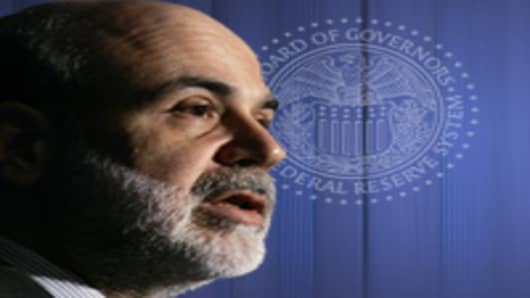A little more than half of the respondents believe that the measure to increase the size of the portfoliowill be “somewhat effective” at lowering interest rates, with 38 percent saying it will be “somewhat ineffective.” The result is little changed from the prior survey and several responses indicated again that the market may already have priced in the bulk of the move interest rate move.
Comments included those who believe the Fed is “pushing on a string,” that is, further efforts to stimulate the economy will have no impact, to those who say the Fed’s efforts will continue to weaken the dollar.
Art Hogan, managing director of Jefferies, says he’s not entirely sure the purchases are necessary.
“We are in a very strange place right now between the market having priced in QEII and the economic data signaling that it may well be premature to bring on new stimulus,” Hogan wrote.
CNBC also asked about the likelihood of several alternative Fed policy measures over the next year that have been public discussed. The leading option is lowering the interest rate on excess reserves, which 37 percent see as likely, compared with 48 percent saying it’s unlikely.
Only 12 percent believe the Fed will target a specific interest rate rather than the size of the portfolio, but a surprisingly high 20 percent believe it’s likely the Fed will raise its inflation target from the current level of 2 percent, with 65 percent saying its unlikely.
When it comes to the expected size of the announcement in November, those who say their primary area of interest is equities expect the largest average purchase with an average of $607 billion. Economists, who represent the largest single group of those who replied, see a $486 billion purchase and those in the fixed income market saw the smallest at $333 billion.
But within a year, the groups reverse themselves, with fixed income respondents seeing balance sheet growth of about $837 billion, compared with those in the equity market who see total growth of $432 billion.
- Watch Steve Liesman's Video Report Here



